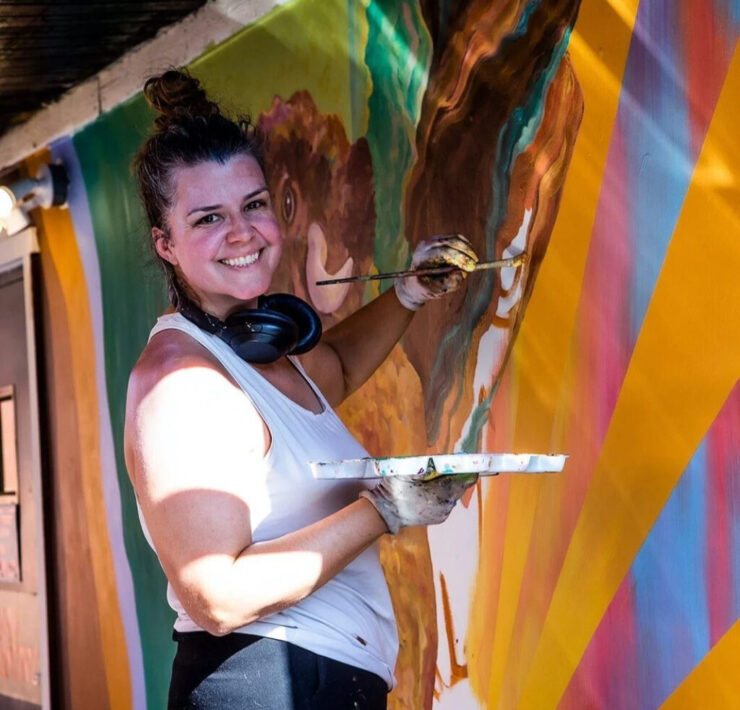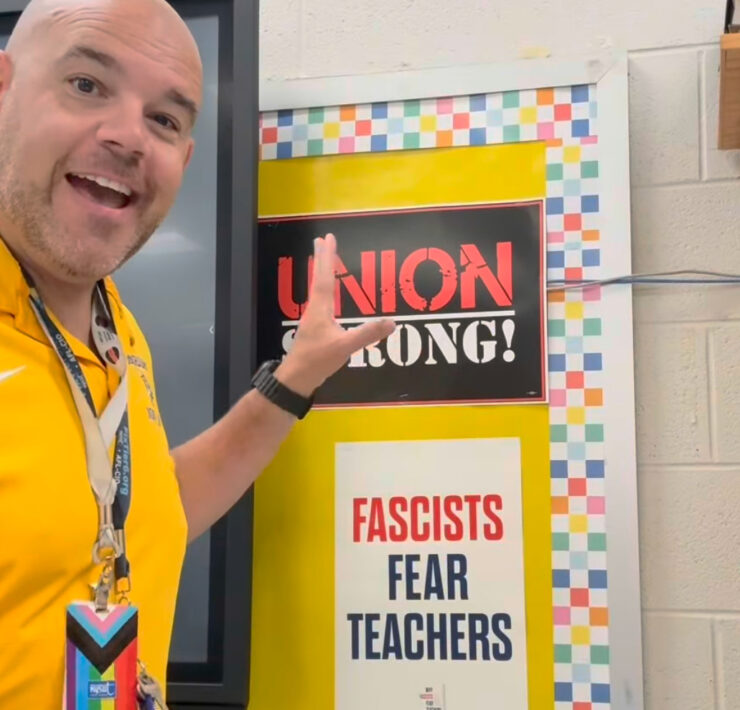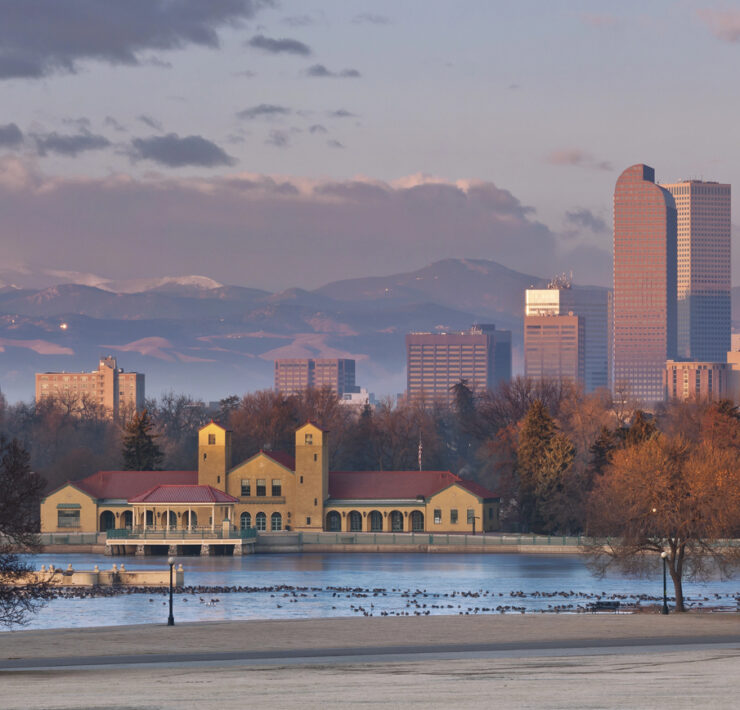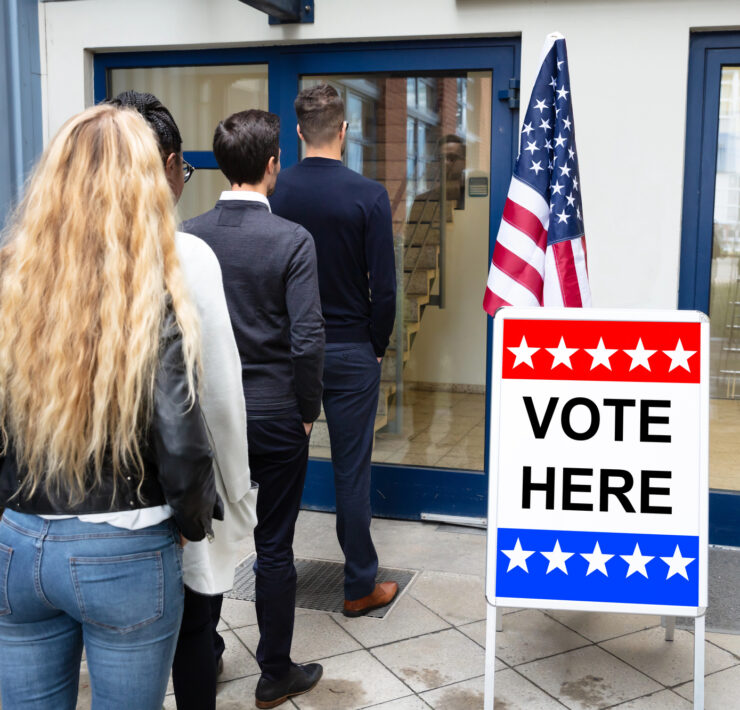‘A Night of Resilience’ Reminds Us that Community Matters

I'm 25, a Libra, and an editorial intern here at…
It’s 6 p.m. on an unusually warm January evening in Denver’s Santa Fe Art District. Tonight, there will be a gathering at Town Hall Collaborative, a trendy bar in the Art District with a distinctly retro atmosphere. There’s a calming, earthy color palette in the space’s furniture and decor, and myriad fancy drinks served at the bar. The space is gorgeous, and tonight it’s the site of an important event—a community gathering in which a panel of experts will advise attendees on how to move forward as a community in the face of adversity. Just as subzero temperatures are expected to hit the city this weekend, Trump’s inauguration looms over the U.S. like a lead zeppelin. Tonight, the community will discuss how to cope with the frigid temperatures we’ll soon be thrust into.
People began trickling into the building at 6 p.m. to attend the panel as the sun sank behind the mountains.The event featured some beautiful trays of food courtesy of Heirloom Catering, a woman- and queer-owned local business. There’s a selection of charcuterie, vegetables, and a delicious hummus spread. People are already mingling, already seeming to come together as a tight-knit community even before the event officially kicks off.
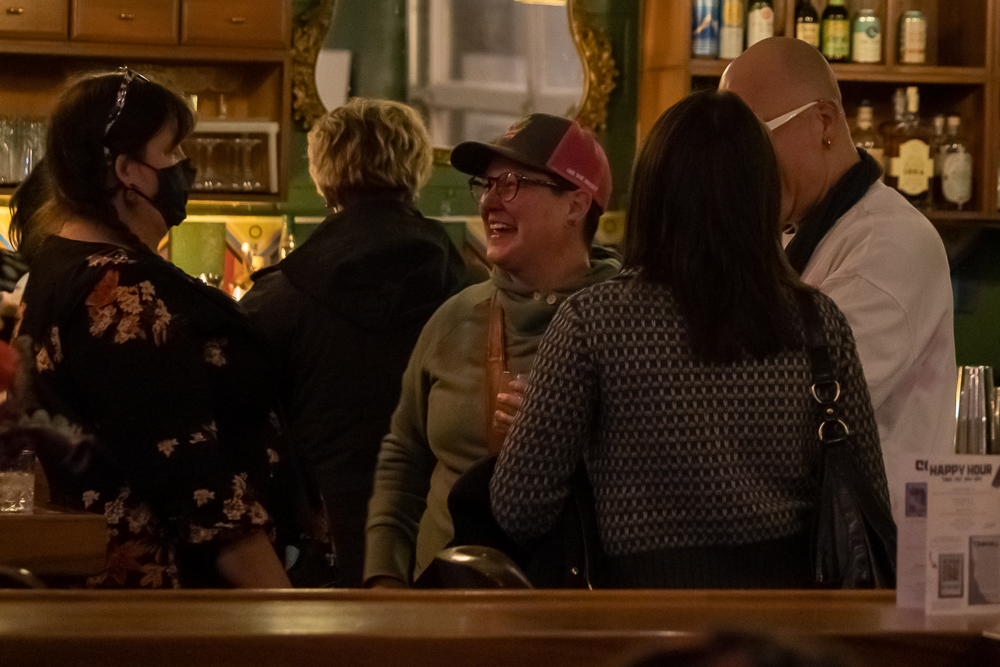
A disco ball spins above, casting a faint glittery light show across the space as host Debbie Scheer introduces the event. She opens with a land acknowledgment for the Cheyenne, Arapaho, and Ute peoples whose land Colorado sits on; the state’s area was formerly a crossroads of the indigenous people. A call for action is underscored in her remarks, encouraging the audience to take on a sense of responsibility to take action accompanying the land acknowledgement.
Scheer shares her experience in the early hours of November 6, 2024. She had woken up in the middle of the night and, against her better judgement, Googled the election results. She describes herself as “in shock, disbelief, shock, (and then) pissed,” in that order, before spiraling into anxiety over the future of American politics and life as we know it here in the U.S.
That brings us to tonight, and tonight is about learning what’s going on. Tonight is about how we can come together as a community. It’s about courageously battling adversity head-on, unflinching in the face of whatever the Trump administration and its constituents hurl our way. It’s important to keep ourselves and each other safe and take care of our blossoming community.
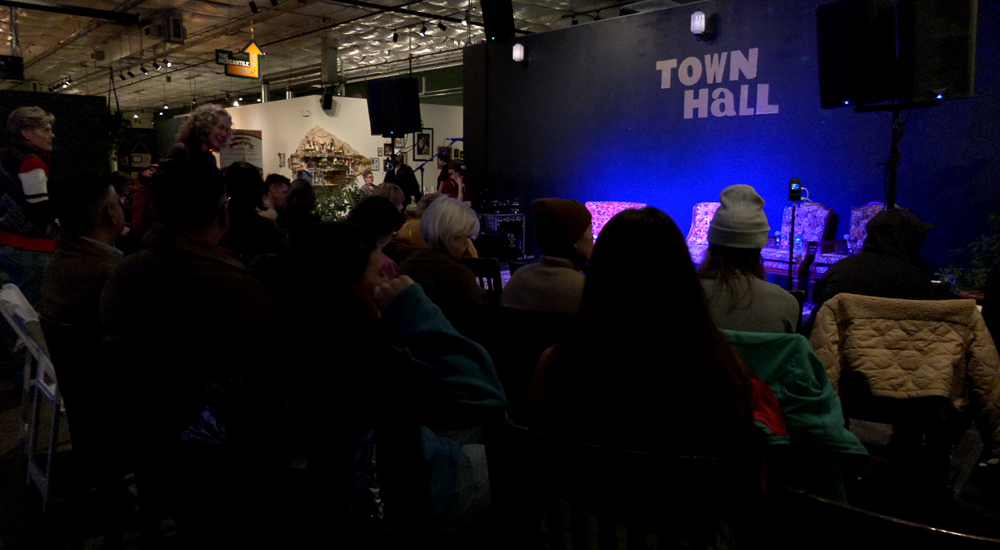
But first, there will be a drag show! In the audience, it’s someone’s first time at a drag show. The first entertainer is Zarah Misdemeanor, who delivers a heartfelt lipsync mix featuring “Natural Woman” and “Respect.” She earns the whooping, hollering, and cheering of the crowd with her enigmatic stage presence. After that, it’s time for America Jackson to perform. Her number features a reveal and the campy queen even playfully dances with a few lucky audience members. The performances are uplifting and inspirational, filling the room with a distinct upbeat energy. In their wake, the queens leave with the audience an undeniably optimistic feeling, like everything will be OK. Parasol Patrol is outside the front doors keeping the event safe for all attendees
.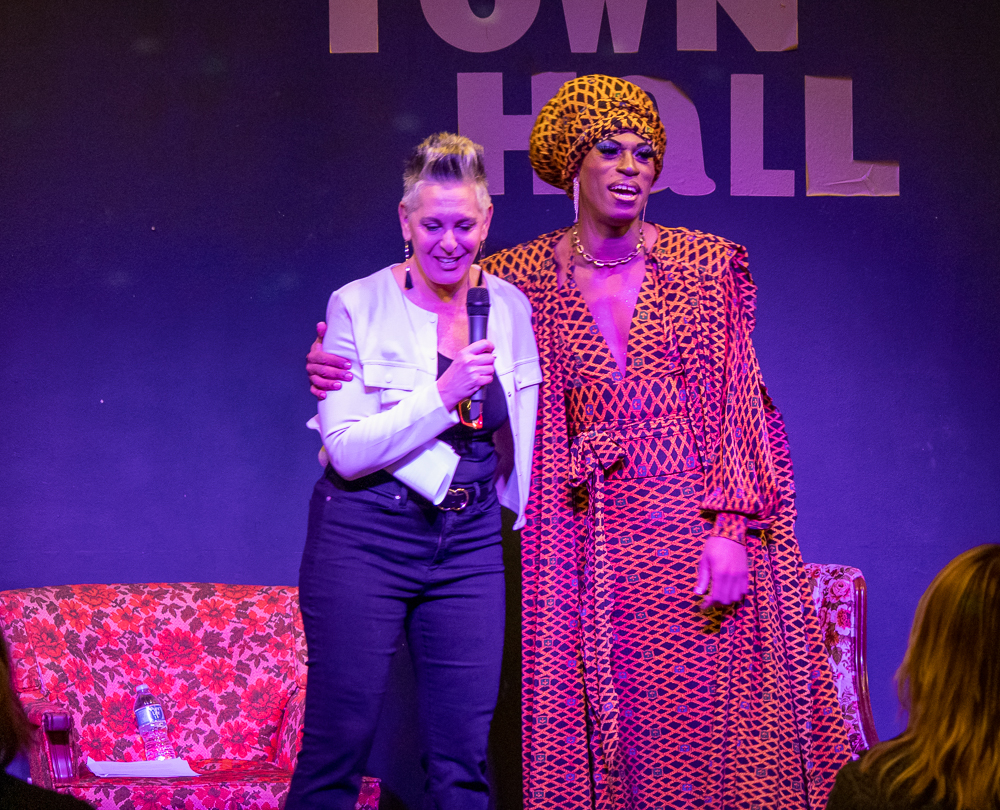
With the audience doing their best to hold on to that feeling, the panel begins. The moderator is Steven Haden, a local advocate of the LGBTQ+ community. In his opening comments, he implores the audience to stand in solidarity. Even when it feels like we’ve taken two steps back, it is imperative to stand strong against the threat of adversity. He also advocates for the support of queer youth, then introduces the panel.
Our three panelists are WellPower CEO Carl Clark, family law expert Ann Gushurst, and community organizer Z Williams. They are here to call for action against conservative efforts to discriminate against the community, and they will be providing insight on what we can do as a community.
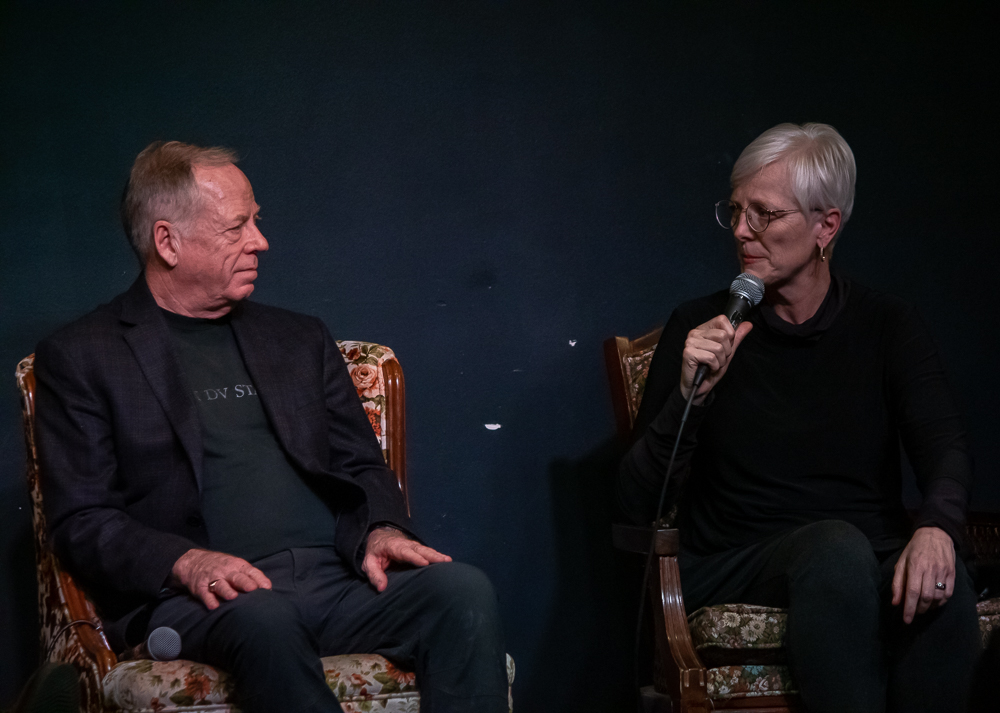
In his opening remarks, Clark discusses the negative impact the election has had on the queer community. It has added another layer of stress to our lives, and the extra anxiety can cause mental health issues. He highlights the importance of taking care of one’s self by reducing social media and political news intake. Building on that, Williams advises against reacting to bigots and suggests instead nurturing community connections as well as dedicating attention to the lives of trans people.
Gushurst takes the floor and implores the audience to take action against bigotry. She tells the audience that it’s important to be attentive to injustice and that complacency is the enemy. “What you can do is make it really uncomfortable to be a bigot,” she says. Gushurst compares what’s happening now to 1920s Germany when citizens wrote off rising political tensions and didn’t take them seriously. “It’s fucking serious,” she insists.
The topic turns to coping with stress. Clark’s answer to the problem of unavoidable stress is to validate one’s self when feeling strong emotions, and that acknowledging stress can lead the brain from a reactive place to a problem-solving one. “Pick a time of day to be stressed,” he says, earning some laughs from the audience. He is serious, though, and suggests picking a time of day to spend time worrying and problem-solving, then letting go of stress as much as possible the rest of the time. Williams advises that taking care of one’s self is the first and most important step in helping others. They want people to meet their own needs as much as possible first, then look around to see who needs help.
The topic turns to legal rights. Rights enshrined in law don’t protect citizens from other citizens’ actions, only the government, Gushurst points out. Protections can be in the letter of the law, but systemic oppression finds a way to bar the marginalized from getting what they need.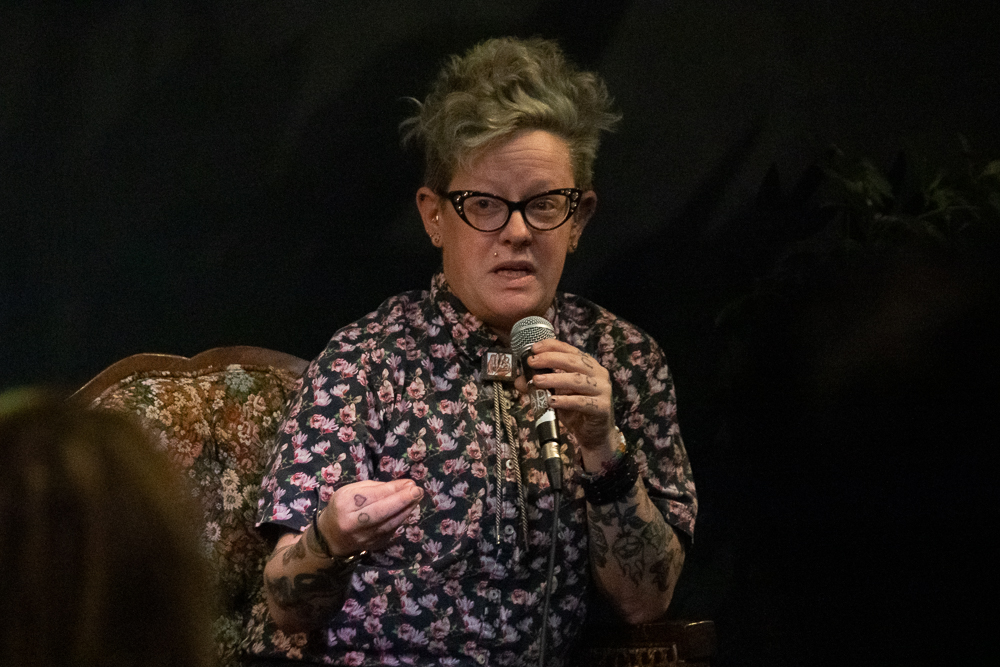
Some audience members express feeling disgusted and betrayed by our country. Clark advises self-care, noting that taking care of one’s self is an effective way to boost problem-solving ability and handling emotions. Williams lists off actions that can be taken—inspiring queer youth, standing up to the underdog, and engaging with the community. A sense of inertia is the goal, and no one individual can solve the issues currently faced by the queer community. “We have done this before,” Williams says, “and we will do it again.”
Self-care is discussed next, as the conversation turns to balancing meeting their needs and taking necessary action in the community. Clark says it’s OK to take a break from serious issues and focus on things like hobbies. This will actually help more in the long run and prevent burnout. It’s important to contribute to your own wellbeing, he says, even if it feels irrelevant to the issues at large. Williams adds that community action is about more than fighting. They want us to find our joy and build community, but they remind us that it’s about much more than building. What’s built, they say, is a tool in enacting change.
Haden reminds everyone that attending this event is taking action in and of itself. There are many different ways to engage, and encourages picking a strategy when taking action and following through on it. Then an audience member takes the mic to tearfully ask how best to support their trans teen through suicidal ideation and other issues commonly faced by trans people. Clark wants her to let a professional help. People want to help you, he says, and it’s important to let them. Walk-in mental health crisis centers are available through WellPower, he says. There are resources available, and getting help is often much easier than anticipated.
Also of note on the subject of trans teens, regulating the information they receive should be a priority. Clark says kids need to know enough of what’s necessary to keep them safe, but not to burden them with too much stress. Spare them the gory details, but keep them informed of what they should know. Allowing your children to be vulnerable by cultivating a safe environment is also key, Haden adds. Kids should have a safe space to express their emotions, and parents must create that safe space by letting their children know that they care about their kids’ wellbeing.
Next up, former State Representative Leslie Herod takes the mic, adding a very important Black voice to the conversation.
“I just want to remind folks that there are Black and Brown and Indigenous people of color who have been on the front lines, who have been erased from this entire conversation and this entire movement, and we cannot allow this to continue to happen in our communities. We have to come together. We have to support each other.”
After Herod’s comments, the conversation turns to fighting back even though things feel impossible. “I still feel like there’s nowhere to go.” Williams suggests avoiding burnout by recognizing that their job is not “freedom work,” that sustaining themself with income is crucial in taking care of their own needs, and therefore important. One cannot fill from an empty cup, essentially. They also want this person to seep through the cracks and find whatever ways they can to take action for justice and equality.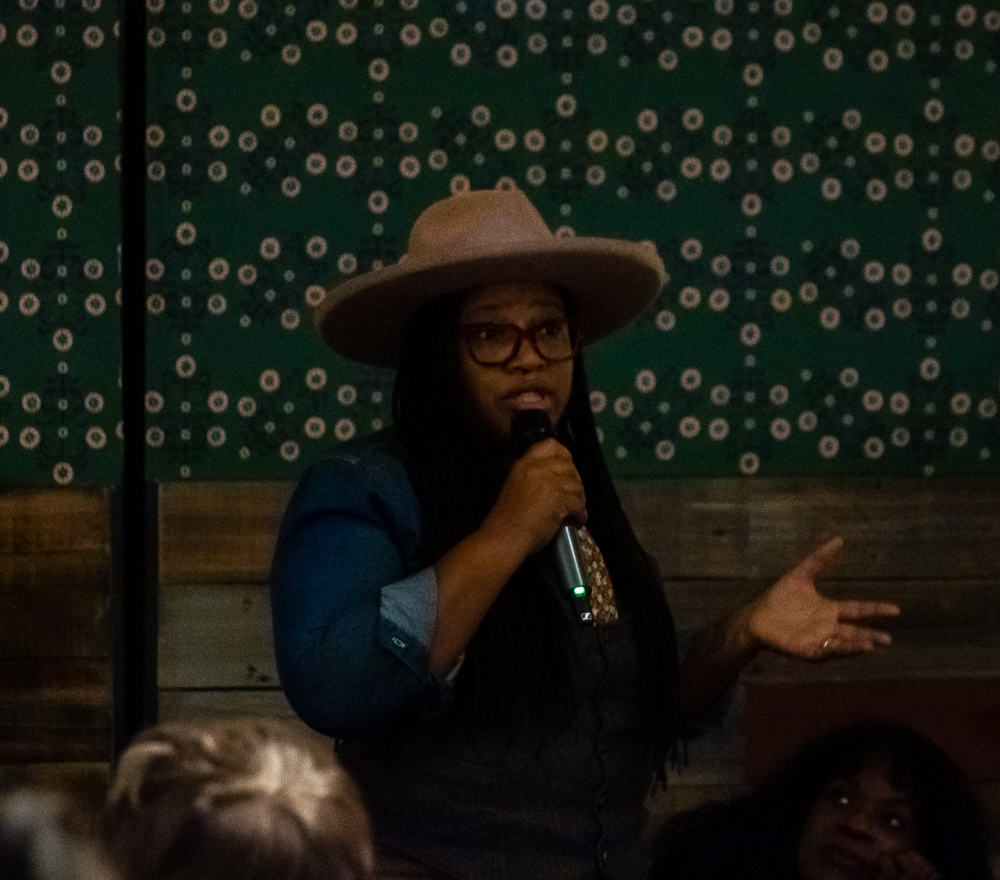
Next, another Black voice is heard in the room. Nadine Bridges, executive director of One Colorado, is quoted as follows:
“I want to be really clear to you all that, like, our community is one of the most powerful, beautiful communities that are out there, right? Like, we are the best infiltrators. We are literally representative of every race, religion, ability out there. And so, I want you to just remember that you are all beautiful people. You are a powerful people. We literally are living our ancestors wildest dreams. There’s a lot of grey area right now, but remember to hold on to that heartbeat, that song, that love, that movement, because that’s going to get us through on the hard days.”
Folks also ask questions about state’s rights being stripped by federal legislation and Meta, which recently changed its policy to allow hateful content towards the queer community to be posted on its platforms Facebook, Instagram, and Threads. Williams suggests using Signal, an encrypted messaging app that is safer to use than other forms of communication. They mention that organization of this kind has been occurring since long before the days of current technology. It may feel antiquated, they say, but we have to change our patterns and do things the old-fashioned way.
Then conversation turns to what rights could be stripped away by the Supreme Court given the current political climate. Gushurst takes the mic to explain that there are several laws that could be reversed such as access to birth control, same-gender marriage, and laws allowing sodomy. The idea that this is a phase is a dangerous idea, and we must encourage and motivate each other to fight back, she says. She compares what’s happening to 1984 and implores the audience to take these issues seriously.
Haden makes his final remarks, telling the audience that we must go into the next several years in solidarity, and that we have the ability to lift up others so they can join the movement. He advises the audience to tell their loved ones that they care, and to nurture their friendships and connections. Having the agency to enact change is what empowers Haden to get up in the morning and do the work, he says.
With that, Scheer comes back on stage, thanks the audience for sharing vulnerable stories, and thanks the panelists for their whole-hearted participation during the event. She also mentioned Clark and Gushurst filled in for other panelists last minute who couldn’t make it and thanked them for being there. There were more comfortable places to be tonight, she says, but we chose to be here instead. We’re a community, and we have to do this work together.
“I am so grateful we had the chance to come together in community just days before the significant shift in Washington, D.C. Now more than ever, fostering connection, supporting those we care about, and driving positive change for LGBTQ+ individuals and other marginalized communities is crucial for our mental health, well-being, and civil rights,” says Steven Haden (he/him), founder of Envision:You and co-host of the event, in a reflective quote following the event.
Photos and video courtesy of Brooke Danielson
What's Your Reaction?
I'm 25, a Libra, and an editorial intern here at OFM since December. I love writing, astrology, and beautiful downtown Denver! I am proud to share that I recently survived two years of homelessness and have overcame all the barriers that come with it. Living in my own place for the first time is scary sometimes, but nonetheless it's a testament to my own tenacity. Thanks for reading my profile!



